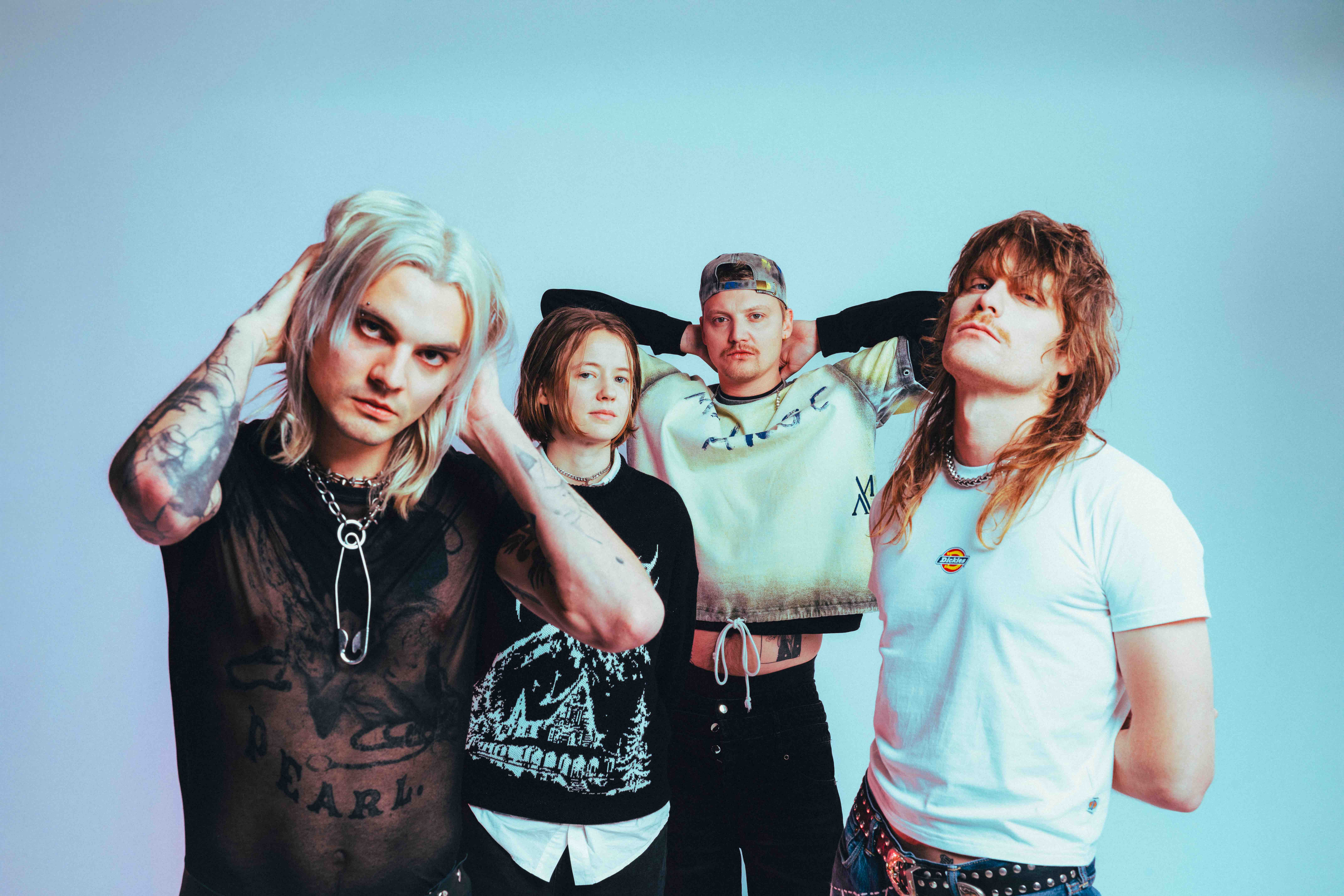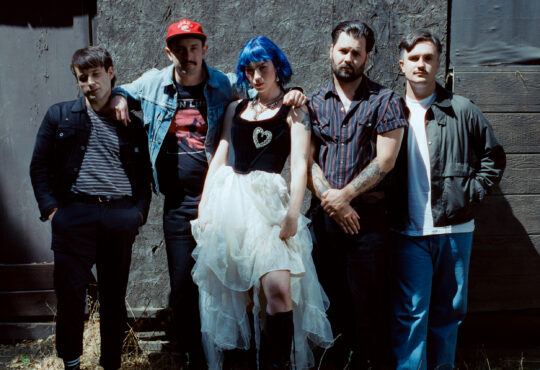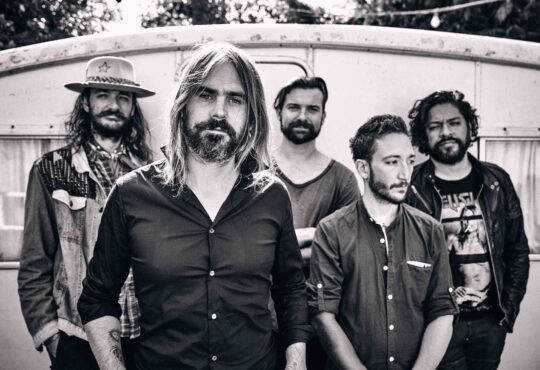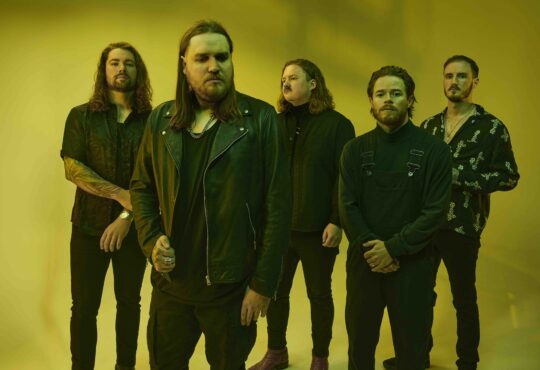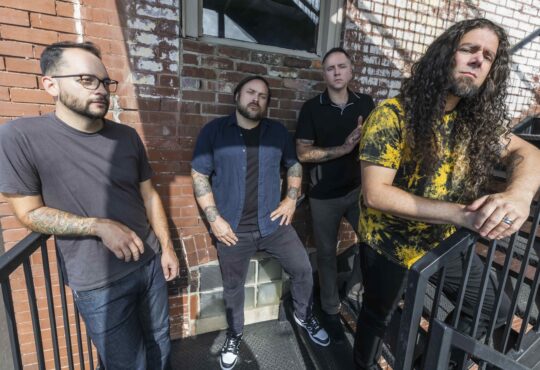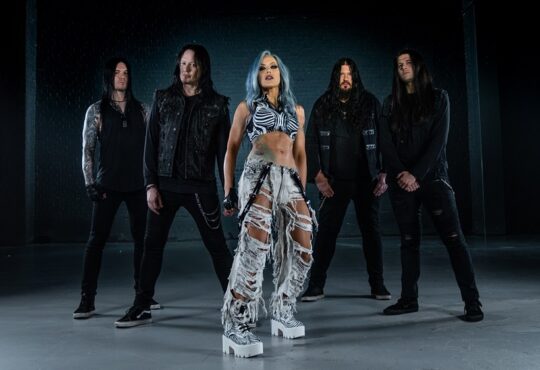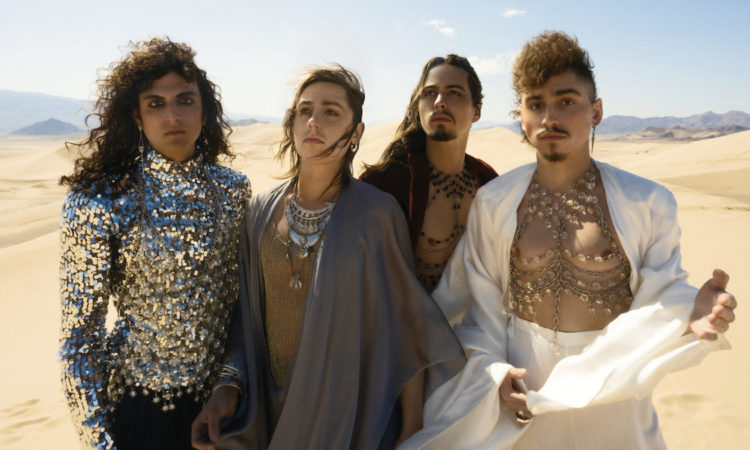
The long-awaited new album from Greta Van Fleet is set to be released this summer. In light of this exciting news, we had a friendly chat with bass player Sam Kizska about their upcoming record, Starcatcher.
Hello Sam, how are you?
Sam Kiszka (bass & keyboards): I’m doing great. How are you?
Good, thanks for asking. D-Day is approaching for the new record. How do you feel about it comparing to the previous oens? Is there any difference or your mindset maybe about Starcatcher?
Sam: Yeah, I hate this album and I’m going to try to not get it released. I’m trying to cancel the release now. I’m just kidding. I love it. I love it so much. And here’s what I think. This is a very natural evolution for Greta Van Fleet and this was the sound that we’re really trying to achieve our entire career. So, you know, and I think it kind of comes from the angle of Dave Cobb and Greg Gordon, Dave Cobb, producer, Greg Gordon, engineer, you know, having the knowledge and resources of the classic recording techniques and mixing as well.
So as far as we’re talking sonically, we did so many tricks, we did backwards tracks, we did panning all over the place, we did tape machines, we did incredible plate reverbs, you know, we did all this stuff. So sonically it’s really amazing and concise and exactly what we wanted to sound like. And every instrument as it’s space and everything’s kind of able to sing its own tune, but at the same time, homogenized by the time it’s coming out of the speakers to kind of create this one well-rounded sound, which I love, and that’s only the sonics.
As far as the songwriting goes, I think it’s some of our most advanced and creative work because it’s so simple. We kept it really simple on this one. We didn’t try to do anything too epic. We didn’t try to do anything too fancy, but it certainly did turn out epic just from the songwriting sense, sometimes it cuts time and it goes, it goes, it slows down, and then you’re in a psychedelic environment.
So we love the stuff like that. I love this album, but one of the main things is one of the three pillars of this album. Maybe, there are four, maybe the fourth is the lyrics. But the third, I would say certainly is the nature in which we captured it, not how we captured it, but the environment was so relaxed and the environments was almost nonchalant.
The no pressure in some ways we were able to communicate with each other sonically through our instruments, using that vernacular of, you know, just we played with each other, we played it, you know, I don’t know, ten years almost. And so we know that language and we were able to be very candid and very real and very authentic, which I think was very important for Starcatcher to capture the music in its most organic form.
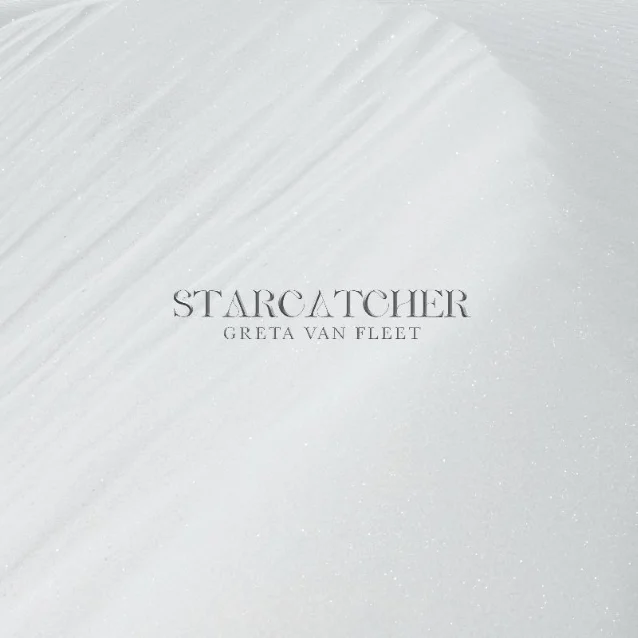
Starcatcher sounds very aerial, and you mentioned Dave Cobb, and a few months ago you stated that he was the obvious producer for this album. How did that happen?
Sam: We looked in a phone book and we went under the producers and he was the first one with C at the beginning of the alphabet. Now I just think what really, really happened, obviously we knew of Dave Cobb because at this point in his career he’s quite a prolific producer, especially in Nashville.
But so we met with him and also when we were recording our first album, Anthem Of The Peaceful Army (2018), we met with, we met with Dave because Dave and Jay Buchanan came in, you know, from Rival Sons to the studio at Blackbird. So we all kind of met briefly and hung out. So later on we all went to RCA and we met Dave Cobb and we listened to music and we really hit it off and we said, It’s a good time to make an album.
And, you know, we were talking about Humble Pie, we were talking about the early Zeppelin stuff, and we were talking about Rolling Stones and The Beatles recording techniques, and we were talking about like some of the albums he did with like Brandi Carlile or Chris Stapleton. So it was all really interesting stuff. And we all really, you know, musically, we all kind of spoke the same language.
So it was a very natural decision. And Greg Gordon, the engineer, was such a pivotal part in his process and just hanging out and just being comfortable. And is Greg‘s process. And in doing all of these classic recording techniques that are tried and true and all of the albums that we love have these kind of tones on it.
And one of the things that was such a big deal for this album was not only do all the instruments have their own space and sonic real estate, but the room sounded so beautiful. RCA Studio Air, which is such an incredibly, you know, old and historical in a historically significant room. And it sounds so fantastic. So a lot of the album that you hear is our amps out in the open and drums out in the open and Josh singing out in the open.
So it’s a very, like you said, it captures kind of the airiness of the room and it feels more alive and it feels like home. The goal was to make the listener feel like you’re actually kind of there and in, you know, what the room feels like and you know, you’re in a big space.
And that’s funny because it also matches with “Meeting The Master” video clip, which are the images for what we can guess, listening to the music and let’s saw heavenly vibes that matches the music as well. Should we also interpret or maybe not overthink your desire to reach some kind of a musical peace? Or is it just a transcription from your experience in the studio? Like just being free to do whatever you wanted to do, you know, in a peaceful atmosphere?
Sam: Yeah, I think that that kind of creates almost a multiple perspective experience when you speak about it like that. Because it’s true. Yes. A lot of the album talks about, you know, the Starcatcher, kind of this mythological and godly figure. So I think I think overall, yeah, it’s open air. It’s free in some ways. It’s whimsical, psychedelic, and it was all about just capturing that lightning in a bottle because what happens is we’re out on the road for months and we come together and we’re like, okay, let’s write, let’s write something because we’re all getting bored for being home for three days and we do and it explodes.
And I think that kind of happened there because a lot of the time, instead of just writing music, it’s almost like you’re exploring and you’re exploring certain territories, you’re exploring further than you have, because that’s the goal of exploration for us. And you’re also so not only are you exploring and discovering things, but you’re also creating at the same time.
So it kind of all homogenize is into this one thing, and especially when it’s a four member band, you know, along with Dave Cobb, who is jumping in and saying, Oh, let’s, let’s, let’s change this part to this key and sort of interesting stuff like that. So it all, like I said, homogenize. And it creates something, you know, pretty unique, I think.
Danny said that you wanted to build a universe. And when we listen to the album of you see, we can we can hear this universe you created here, but you also talked about the garage time that you wanted to go back to, how both can work together and not be opposites.
Sam: So that’s yeah, interesting you say that because it is going forward while looking back at the same time we did The Battle At Garden’s Gate (2021) and it just that was the album we wanted to do our entire career. We said, okay, well where do we go from this? And the only way that you can go forward is look behind you.
And that’s exactly what we did. And I think it was a good approach because what happened was we were able to really focus on the energy of the music and be relaxed, but create the parts at the same time and like I said, it was like you were like running after this thing. You’re trying to capture this this moving object, which isn’t me.
Josh, Jay, Daniel, Dave… It was this thing that was created by us. It’s like escaping. So we have to chase it down. And we did. And it wasn’t the easiest thing to keep up with the movement of the music, but it was an entire and entirely different experience doing that because it’s almost like you were trying to keep up with the creativity exploding in the room.
And I think that makes the album very exciting and it just created that environment too.
So the universe you built for this album and the way it works today on streaming platforms like playlists, singles and stuff. Isn’t there any risk? Maybe not for your already or the fan you already have, but if someone want to listen to a new track and discover your music, but it’s one track in a whole track listing, you know, and how to get into the universe isn’t there. And the risk, let’s say, to build a universe as a record. But knowing that the way it will be distributed to people is not the way we usually listen to music, right?
Sam: So here’s the thing about the music that we love and also us being Greta Van Fleet, the universe that we build. I don’t know if we’re building it on top or below the music, but you don’t need to know the context about it, which is the incredible part.
There’s this, then there’s this Picasso painting that I love to reference, and it’s about the it’s about the Spanish war that happened in his lifetime. And it’s a beautiful painting, but you don’t know the context unless you know historically the context. So there’s like this whole layer beneath it. And I’m not I’m not directly comparing Greta Van Fleet to Picasso, but just the concept of it is the music stands on its own.
You don’t have to know the context. You don’t have to know the world in which it lives in. But if you want more, if you hear the music and think, Wow, this is really great, I want to know more, I want more context. It’s there because there’s this visual world that we’ve created and we’re actively creating because that’s really important to us.
The cinematic, the visual cinematic universe of creativity and stage. So the music stands for itself, but the live show is something completely different and the visual world is something completely different. And all the art that we really love, you can keep digging into it, you can keep shoveling things out and you keep finding new stuff. And we kind of hide these Easter egg kind of things.
And yeah, I think that’s because we’re restless and perfectionists and egomaniacs as well. That’s why we do this to ourselves.
And here’s the traditional last question: we are RockUrLife. So basically what rocks your life and that could be anything.
Sam: What rocks my life? You know what rocks my life is being grounded to this Earth that we’re on. And whenever I feel overwhelmed a lot of the time, it’s because there’s a lot, you know, like there’s music going on in my head and I can’t make it stop. And I’m constantly thinking about these things when I can go out into the forest and sit there and hear the birds chirping and the wind blowing through the trees, that’s when I can finally relax.
So I guess what rocks me is my rock. It’s my anchor. It’s nature is being outside. It’s being connected to this this beautiful, giant spinning rock that’s flying through the universe at terrifying speeds. So that’s what rocks me.
Perfect. Thank you very much.
Website: gretavanfleet.com



